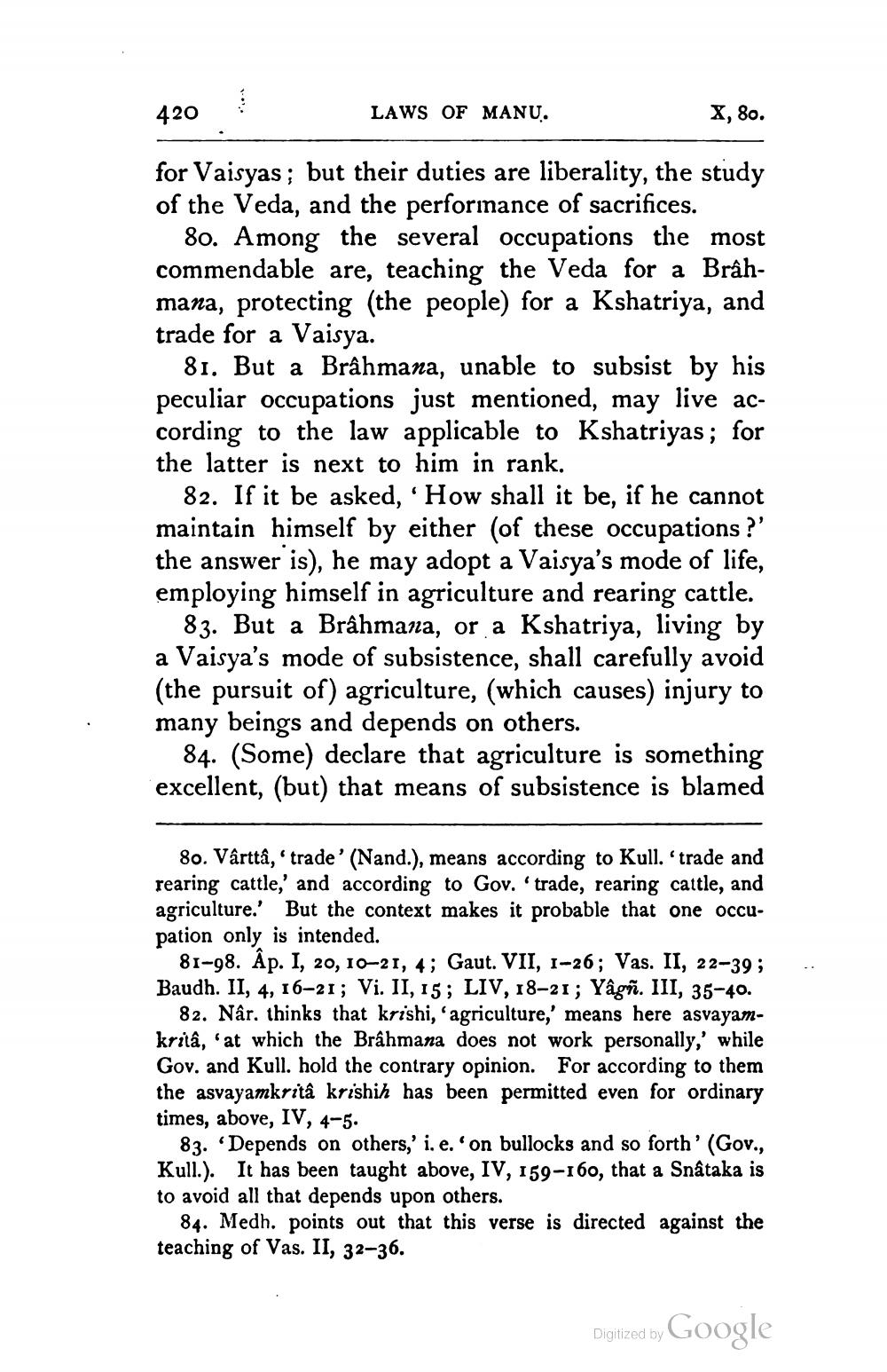________________
420
LAWS OF MANU.
X, 80.
for Vaisyas; but their duties are liberality, the study of the Veda, and the perforinance of sacrifices.
80. Among the several occupations the most commendable are, teaching the Veda for a Brâhmana, protecting (the people) for a Kshatriya, and trade for a Vaisya.
81. But a Brâhmana, unable to subsist by his peculiar occupations just mentioned, may live according to the law applicable to Kshatriyas; for the latter is next to him in rank.
82. If it be asked, 'How shall it be, if he cannot maintain himself by either (of these occupations ?' the answer is), he may adopt a Vaisya's mode of life, employing himself in agriculture and rearing cattle.
83. But a Brâhmana, or a Kshatriya, living by a Vaisya's mode of subsistence, shall carefully avoid (the pursuit of) agriculture, (which causes) injury to many beings and depends on others.
84. (Some) declare that agriculture is something excellent, (but) that means of subsistence is blamed
80. Vârttâ, 'trade' (Nand.), means according to Kull.trade and rearing cattle,' and according to Gov. 'trade, rearing cattle, and agriculture.' But the context makes it probable that one occupation only is intended.
81-98. Ap. I, 20, 10–21, 4; Gaut. VII, 1-26; Vas. II, 22-39 ; Baudh. II, 4, 16-21; Vi. II, 15; LIV, 18-21; Yågñ. III, 35-40.
82. Nâr, thinks that krishi, agriculture,' means here asvayamkrita, at which the Brahmana does not work personally,' while Gov. and Kull. hold the contrary opinion. For according to them the asvayamkrita krishih has been permitted even for ordinary times, above, IV, 4-5.
83. Depends on others,' i. e..on bullocks and so forth' (Gov., Kull.). It has been taught above, IV, 159-160, that a Snataka is to avoid all that depends upon others.
84. Medh. points out that this verse is directed against the teaching of Vas. II, 32-36.
Digitized by Google




